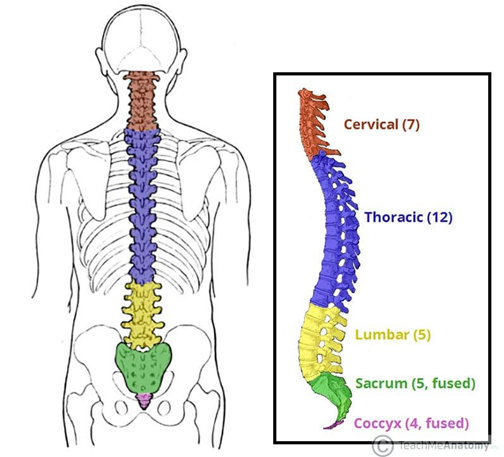Which of the following locations in the brain is responsible for regulation of respiration?
Basal ganglia
Parietal lobe
Medulla
Hypothalamus
The Correct Answer is C
a: Basal ganglia - The basal ganglia are involved in motor control and coordination but not in respiratory regulation.
b: Parietal lobe - The parietal lobe is involved in sensory processing and spatial awareness but not in respiratory regulation.
c. Medulla: The medulla oblongata, specifically the respiratory center within it, is responsible for the involuntary control of respiration, including setting the basic rhythm of breathing and responding to changes in blood pH and oxygen levels.
d: Hypothalamus - The hypothalamus regulates various physiological processes, including temperature regulation and hormone secretion, but not respiration.
Nursing Test Bank
Naxlex Comprehensive Predictor Exams
Related Questions
Correct Answer is D
Explanation
a. Forming the contractile component of the digestive, urinary, and reproductive systems: This describes smooth muscle, not skeletal muscle.
b. Contracting to cause involuntary muscle movements: This is a characteristic of smooth and cardiac muscles. Skeletal muscle is primarily involved in voluntary movements.
c. Pumping blood throughout the body: This is the function of cardiac muscle, not skeletal muscle.
d. Shivering for heat production: Correct. Skeletal muscles generate heat through shivering, which is an involuntary contraction response to cold.
Correct Answer is B
Explanation
a: Cervical: 7, Thoracic: 14, Lumbar: 6 - This count for the thoracic vertebrae is incorrect; there are typically 12 thoracic vertebrae.
b. Cervical: 7, Thoracic: 12, Lumbar: 5-The vertebral column consists of cervical (neck), thoracic (upper back), lumbar (lower back), sacral, and coccygeal regions. The cervical region has 7 vertebrae, the thoracic region has 12, and the lumbar region has 5.

c: Cervical: & Thoracic: 12, Lumbar: 5, Sacral: 3 - This count for the cervical vertebrae is incorrect; there are typically 7 cervical vertebrae.
d: Cervical: & Thoracic: 14, Lumbar: Sacral: 4 - The counts for cervical and lumbar vertebrae are incorrect; there are typically 7 cervical vertebrae and 5 lumbar vertebrae.
Whether you are a student looking to ace your exams or a practicing nurse seeking to enhance your expertise , our nursing education contents will empower you with the confidence and competence to make a difference in the lives of patients and become a respected leader in the healthcare field.
Visit Naxlex, invest in your future and unlock endless possibilities with our unparalleled nursing education contents today
Report Wrong Answer on the Current Question
Do you disagree with the answer? If yes, what is your expected answer? Explain.
Kindly be descriptive with the issue you are facing.
